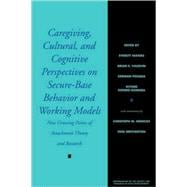The attachment bond that develops between infant and mother is the first of many intimate relationships we form throughout life, and as such it has been the focus of much research. But how does the quality of the secure base phenomena that defines this bond vary among individuals and across cultures? What methods can be used to asses its presence and characteristics?
Following an interview with Mary S. Ainsworth, the originator of the concept of secure base, this new Monograph brings together eleven papers that consolidate our understanding of the empirical advances that have occurred in attachment research. The collection is organized into three sections. Part One includes papers on the generalizability of attachment theory and data, including cross-cultural research. Part Two addresses both normative and individual differences among mothers, children, caregivers, and their interactions—and methods for the valid assessment of these. Part Three examines the mental representations that children use to depict their different attachment relationships. Together these papers will stimulate child development specialists and students to explore different assessment methods and to move beyond current understandings of attachment.








